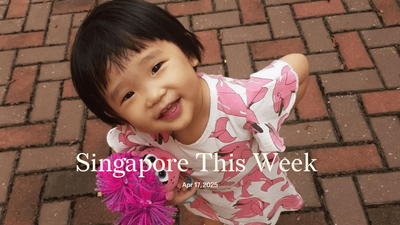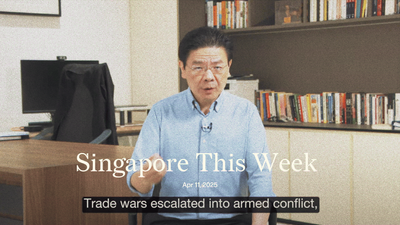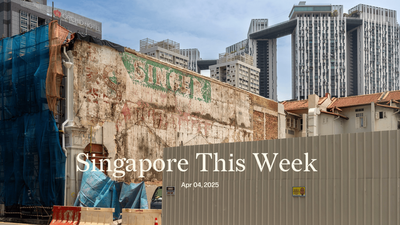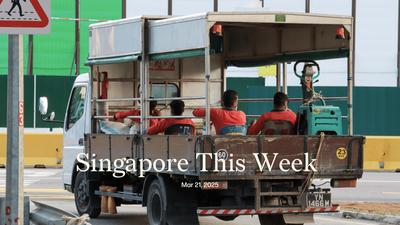Politics: The WP asks if the PAP propagates falsehoods
It’s increasingly apparent that housing may be the key issue at the next general election, due by 2025. In the face of spiralling prices and rents, The Straits Times (ST) has started regularly publishing full-page government ads praising our supposedly affordable public housing. (Read: the pricier homes become, the more of your money is spent telling you how cheap they are.) Meanwhile, politicians from the ruling People’s Action Party (PAP), led by Desmond Lee, minister for national development, all seem equipped with the usual talking points. High home ownership. Financial security. Generous subsidies. Yet there’s a limit to ministers in mansions preaching affordability to Singaporeans in shoeboxes. Another tactic is to convince Singaporeans that the housing shortage, particularly with Build-to-Order (BTO) flats, would be worse under the opposition. That’s what the PAP has done this past month, attacking a 2019 Workers’ Party (WP) housing paper, in Parliament, on social media, and in ST forum letters. The PAP cites an obscure paragraph where the WP outlines potential long-term risks of housing oversupply. Yet the PAP conveniently ignores the very first sentence of the next paragraph: “BTO projects should continue…” In his forum letter, Henry Kwek, PAP MP, bizarrely accused the WP’s paper of “urging the Government not to build more BTO flats”. (There’s no evidence of this in the paper. Kwek did not return a request for comment.) Leon Perera, WP MP, asked Parliament if the PAP “has become a party that propagates falsehoods”. At one point, PAP ministers laughed out loud at him. Many Singaporeans will feel like they’re the butt of the joke too.
Politics: Police investigation of Lee Hsien Yang may scupper any presidential bid
Yesterday in Parliament, Teo Chee Hean, senior minister, said that the police is investigating Lee Hsien Yang, younger brother of Lee Hsien Loong, the prime minister, and his wife, Lee Suet Fern, for possibly giving false evidence during judicial proceedings related to the will of Lee Kuan Yew, Singapore’s first prime minister. It’s the latest in the seemingly never-ending sibling feud over their father’s will, pitting the elder Lee against his two siblings: Lee Hsien Yang and sister Lee Wei Ling. The police said that they requested an interview with the couple in June 2022, then acceded to their request to meet the following month. The police claimed that they later backed out, left the country, and have not responded to further requests to cooperate in the investigation. In a short Facebook post, Lee Hsien Yang said that “the persecution of my family by the Singapore Authorities continues unabated.” The police’s investigation is fortuitous for the PAP because it may scupper any potential run for the presidency by Lee Hsien Yang. The election is due this year, and though he has never indicated any interest in it, his supporters have been egging him on. The stringent eligibility criteria means he is one of the few non-establishment figures who could possibly contest against a PAP-approved candidate. Perhaps Singaporeans should brace themselves for another walkover, as occurred in 2017 with the incumbent, Halimah Yacob.
Note: In his speech, Teo criticised a book, The battle over Lee Kuan Yew’s last will, by Sudhir Vadaketh, Jom’s editor-in-chief, which was published independently before Jom launched. In a rebuttal to Teo, Vadaketh said that the book is based almost entirely on court documents; its findings are inconvenient for Teo; and that Singaporeans can read it and make up their own minds. The book is available freely for download here.
Society: Bahasa Jiwa Bangsa
Language is the soul of the nation. And the spark this week in Parliament for an important debate around immigrants. “Singaporeans do not want new citizens who don’t want to live here but only want the power of the Singapore passport for their convenience and a safe and secure environment for their assets and wealth,” said Pritam Singh, WP leader. Though he didn’t name them, many Singaporeans might think of the many plutocrats from Mainland China and Hong Kong that have moved here recently, causing consternation among Singaporeans about the rising cost of living, including of property. Singh called for a mandatory English test for new citizens and permanent residents along with transparency on immigration eligibility criteria and migration applications. There’s nothing controversial about these suggestions, already practised by many rich multicultural countries: language skills help new migrants integrate and transparency ensures that both current citizens and prospective ones have faith in the legitimacy of the process. Josephine Teo, second minister for home affairs, disagreed. She claimed the English test would discriminate against foreign spouses—who, ironically, already face government-sanctioned hurdles to integration—and that transparency would allow applicants to game the system. Opacity, of course, allows the PAP to do the same—giving preference to ethnic Chinese migrants, as they’ve admitted to, and turning away migrants from apparently undesirable countries in Africa and South Asia, as many suspect they’re doing. Don’t expect any apologies from JoTeo.
Society: The high of deterring illicit drugs
A new saliva test kit that detects drugs within 10 minutes has been deployed at border checkpoints since January and roadblocks from February. Central Narcotic Bureau (CNB) officers can now arrest on the spot those who test positive, and subject them to more tests at a different site. The Ministry of Home Affairs (MHA) is concerned by annual data showing an increasing number of users of both controlled and new psychoactive substances (NPS). Almost two in three drug users were below 30. Yet the numbers seem too small to justify further draconian measures: a total of 2,812 drug users were arrested in 2022, or some 0.005 percent of the population. Singapore’s zero-tolerance stance against drugs (including its unwavering support and insistence on the efficacy of the death penalty, and the extraterritorial nature of its drug laws) appears to be getting tougher. Last week, MHA tabled amendments to the Misuse of Drugs Act and the Constitution that would introduce a new legislative framework to control substances based on their capacity to produce a psychoactive effect, rather than on their chemical structure. It broadens the police’s powers to arrest and detain NPS abusers, and proposes the caning of those who possess selected controlled drugs above a certain weight. But are severely punitive measures really the best deterrents? Critics say they aren’t. Given the paucity of local data, it’s hard to say for sure. “Singapore’s focus is on building a drug-free society, not a drug-tolerant one,” said CNB’s director, which suggests the ham-fisted approach will continue to focus more on criminalisation than harm reduction. A more enlightened one would require the consultation of other stakeholders such as the Transformative Justice Collective. But it’s not their voices the government wants; it’s your spit.
Society: Lost in transition
The used shoes were meant to be transformed into jogging tracks, fitness corners and playgrounds as part of an island-wide recycling programme spearheaded by national agency Sport Singapore (SportSG) and Dow Inc, a US petrochemicals company. But Reuters has unearthed serious weaknesses in the programme’s collection and recycling process, which has allowed donated shoes “to be exported, diverted for resale and pilfered from bins.” Of the 11 pairs of shoes fitted with GPS trackers that the news agency dropped off at allocated points around the island, not a sole ended up at a recycling facility. Instead 10 pairs were exported to Indonesia, and the last never left Singapore (exact location unknown). “As someone who works hard to encourage recycling and is constantly met with cynicism, this is a bloody blow,” wrote Robin Rheaume on LinkedIn, a zero waste advocate who runs recyclopedia.sg, an online resource that helps Singaporeans reduce their rubbish output. Despite years of state-led campaigns to promote recycling, the domestic recycling rate in 2021 was at a 10-year low of 13 percent, even as households generated more waste—1.82 million tonnes, compared to 1.77 million tonnes in 2020. Given South-east Asia’s plastic waste problem, the failure to recycle the footwear as promised—not all will be resold—can compound a less developed country’s waste problems—the outsourcing of pollution. SportSG has issued an apology for “this lapse” on behalf of the programme’s partners. It’s now incumbent on the agency and Dow to regain the public’s trust in the initiative (and the nation’s broader recycling efforts). Besides better oversight, organisers of such programmes must be held accountable for achieving their objectives.
Arts: I Swallowed a Moon Made of Iron
In 2014, a factory worker who manufactured electronics in Shenzhen, China, took his own life. After his death, his brother discovered the collection of poems that he wrote in secret: poems about his working and living conditions, labour exploitation, and the hopes and dreams he harboured for himself. Xu Lizhi passed away at only 24 but left behind a startling poetry collection that has gained him recognition as one of the best in China’s worker-poet literary movement. Xu’s poems have been adapted for a theatrical concert titled, “I Swallowed a Moon Made of Iron”, by Njo Kong Kie, the former music director of La La La Human Steps, an internationally-renowned Canadian dance company. Njo set some of Xu’s poems to music, creating a score for solo voice and piano that will be performed in Mandarin with English subtitles. This is the show’s South-east Asian premiere and will be the first time it’s performed in front of a large Mandarin-speaking audience. The show only runs for one day, March 14th, with two performance times. Tickets and more information can be found on Peatix.
Arts: Crossing Cultures at ACM
Experience the Asian Civilisation Museum’s (ACM) collections through its quarterly programme Crossing Cultures, a weekend of performances and experiences. Featured programmes include a showcase and a movement workshop by Eka Suwara Santhi, Singapore’s only Balinese dance troupe, a dance party with Salsa Cabana Singapore for dancers of all levels, and a silent disco in the museum’s lobby. This edition of Crossing Cultures is presented in conjunction with the ACM’s special exhibition, “Body & Spirit: The Human Body in Thought and Practice”. Visitors can enjoy discounted entry to the exhibition while the programmes are on. Crossing Cultures is on this weekend from March 3rd-5th. Some activities are ticketed, more information can be found on the ACM website.
History weekly by Faris Joraimi
In Parliament this Tuesday, Dr Janil Puthucheary, senior minister of state for communications and information, announced that the government is declassifying the “Albatross file”, an important collection of documents belonging to the late Goh Keng Swee, former deputy prime minister. The papers record how Singapore’s supposed “expulsion” from Malaysia on August 9th 1965 was planned and premeditated by officials from both sides. Revelatory as it seems, information from Albatross has been released to the public before: by Goh himself in a 1980 interview, at a National Museum exhibition in 2015, and in a 2016 book, Riding a Tiger, by Khor Eng Lee. A larger issue at stake, perhaps, is the control of information and who decides what the public gets to see, given the lack of a Freedom of Information Act (FOIA). WP MPs Singh and He Ting Ru have both asked whether this accessibility can be expanded, the former having called for an FOIA in Parliament in 2011. In response, Puthucheary said that requests to view closed-access material are welcome, but “assessed by the Government on its merits.” And what ends up in the National Archives—where declassified and “publicly accessible” materials are kept—has gone through a filter: the Ministry of Communications and Information has been declassifying secret documents since 2013, with its own team of researchers and public officers. But some scholars I’ve spoken to have said that the process of obtaining, even seemingly benign, documents from the National Archives for research involves so much red tape that it isn’t worth the effort. Puthucheary also mentioned that “a larger set of declassified documents” will be part of a book on Separation that’s launching later this year—presumably to tout this more nuanced plot, backed by “evidence” that’s transparently and openly available. But with archival records released in dribs and drabs at their discretion, the PAP’s control over history-writing prevails.
Tech: Beep beep! More electric cars to share in Singapore
With the rising cost of Grab rides, a cheaper alternative might be to share cars instead. Carsharing platform GetGo just announced a S$20m (US$14.9m) investment from Treis, a family-backed investment group. GetGo’s model is for Point A-A rides, where you return the car to the same spot you picked it up from. In contrast, drivers are able to return blueSG electric cars at any of their locations across the island. Since launching in 2021, GetGo said it currently operates over 2,100 vehicles across 1,400 locations, registering over 150,000 bookings each month. The price of using GetGo starts from S$3 without subscription or deposit fees. Ride-hailing fees surging again? It might be time to consider a carshare ride instead—arguably more climate-friendly and cost-effective if you drive.
Tech: 500 Global doubles down on South-east Asia
Despite the current downturn in venture capital funding for start-ups globally, Silicon Valley-based venture capital firm 500 Global is significantly expanding its South-east Asia team. The firm currently has more than 16 openings and recently announced the appointments of three new partners—Saemin Ahn, Martin Cu, and Shahril Ibrahim—for its growth fund. Commenting on future plans, Vishal Harnal, global managing partner, said on LinkedIn that the new partners would help 500 Global support its entrepreneurs with tactical expertise, beyond financial investment. In just one decade, 500 Global has invested in more than 340 companies in the region. This includes household names such as Grab, Bukalapak, FinAccel, Carsome, Carousell, and eFishery. It’s also been running innovation programmes like the Youth Action Challenge with the National Youth Council. While there might be a fair bit of doom and gloom in the current fundraising environment, it’s encouraging to see venture capital funds like 500 Global double down on the region.
Tech: Slowdown in venture capital funding not as bleak
Much ink has been spilled over the slowdown in venture capital funding given the current macroeconomic conditions. But, things aren’t as bleak as they seem. According to a report by DealStreetAsia and Enterprise Singapore, 2022 was the best year for Singapore in terms of deal volume (651 deals) and value (US$10.99bn or S$14.8bn). Last year, South-east Asia’s “little red dot” accounted for about 64 percent of total money raised and 56 percent of total regional deal volume. The unicorn club of Singapore continues to expand and welcomed four new members—Livspace, Coda Payments, Biofourmis and Insider. Michael Blakey from Cocoon Capital feels optimistic about the year ahead and believes that “the worst is behind us.” Let’s hope so.
If you enjoy Jom’s work, do get a paid subscription today to support independent journalism in Singapore.






